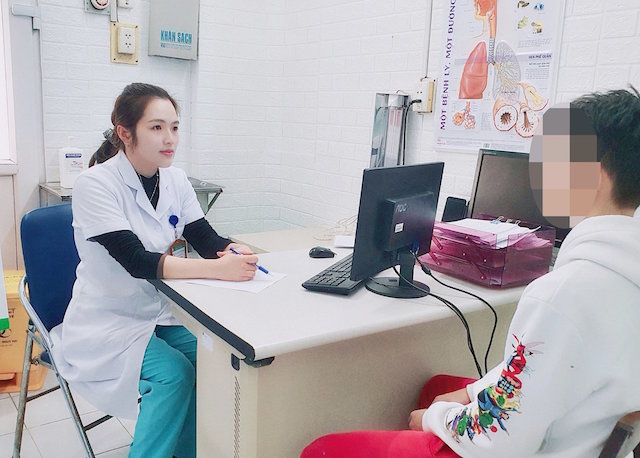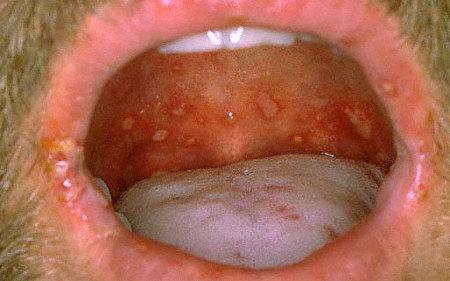Puberty children change their voice like androgynous, is it a disease that needs to be treated?
At the beginning of puberty, Nga’s daughter’s voice was not loud, but “romantic” like a “romantic, female” person, making this mother worried.
Taking her son TVS (13 years old, Son Tay, Hanoi) to the doctor because of a voice disorder during puberty, Nga – her mother said that the child did not show “rebellious” in personality like other children. Children at puberty are different, but only the voice is changed.
But instead of a loud voice, the boy’s voice was “familiar” as if he was “androgynous”. This mother is restless because this condition of her child has lasted for more than a year and has not ended.
“I used to be quiet, but now every time I say something, my friends look at me with mocking glances, making the boy who has been quiet become even less talkative, very self-deprecating. Don’t go to school, it’s like a quiet shadow at home”, Ms. Nga was dumbfounded.
ThS.BS.Nguyen Thi Hong Nhung, Department of Otolaryngology – Bach Mai Hospital, said that pubertal voice disorder is a condition in which a child’s voice persists after full puberty and the larynx has fully developed. whole. Although only encountered with an incidence of about 1 in 900,000, if not treated promptly and properly, these disorders can become permanent and irreversible. Puberty voice disorder leads to psychological inferiority complex, hinders social communication, study, and work, thereby reducing quality of life.
 |
| Doctor of Otolaryngology Department – Bach Mai Hospital examines a patient with a pubertal voice disorder |
The cause of this condition is due to many factors such as psychological, physical damage, living environment.
Specifically about psychological causes, Dr. Hong Nhung said that boys are speaking in a childish voice but suddenly changed to a low voice, making many children feel shy, trying to “hold on” to their old voice, leading to loss of pronunciation. altitude accuracy.
Or another cause is due to physical damage: congenital vocal folds, endocrine, genitourinary, adrenal, pituitary, …
In addition, environmental factors are also the cause of children’s voice disorders during puberty. Accordingly, male children living in families with many sisters or having nutritional deficiencies, or respiratory infections, etc., are also prone to voice disturbances during puberty.
“Pitch is one of the characteristics of the voice, expressed through the fundamental frequency F0. Normally, women and children have a fundamental frequency F0 that fluctuates between 200-300 Hz, so the voice has a high and clear quality. Meanwhile, adult males have an F0 of about 100 Hz, less than half of the vocal range, so they have a warm bass. At puberty, boys will have a physiological development process, turning F0 from high frequency to low frequency F0.
Puberty voice disorder is a disorder of the pitch transition of the voice from high to low that occurs during puberty. As a result, after that, boys still have high, thin, weak voices accompanied by breathing voices, which in folklore is often called androgynous voice.
According to researches in the world, the main cause of this pathology is psychological factors and children’s personality. Only a very small percentage is related to endocrine pathology or damage to the vocal cords,” explained Dr. Hong Nhung.
Therefore, Dr. Hong Nhung with pubertal children whose parents feel abnormal in their voice should see an otolaryngologist to evaluate the characteristics affecting the voice.
At the hospital, doctors will base on the history and development of voice disorders; Examine the muscles of the neck that are involved in the vocalization process (the laryngeal muscles); Laryngeal bronchoscopy; Measure maximum vocal time (MPT); Degree of voice disturbance using the GRBAS and VHI-10 scales; Analysis of vocal quality… to detect and diagnose the degree of pubertal voice disorder. From there, the doctor will recommend the most appropriate and effective treatment for each specific case.
Hong Nhung recommends that pubertal voice disorders greatly affect children’s psyche, reducing quality of life, communication, study and work. Therefore, when suspecting that a child has a pubertal voice disorder, parents should send their child to an otolaryngologist as soon as possible.
“Treatment of pubertal voice disorder is mainly psychological counseling combined with voice exercises. The likelihood of success depends on the correct diagnosis, early (preferably before the age of 20), advice and guidance from a specialist for each specific case as well as patient compliance. Hong Nhung emphasized.
N. Huyen
at Blogtuan.info – Source: infonet.vietnamnet.vn – Read the original article here



